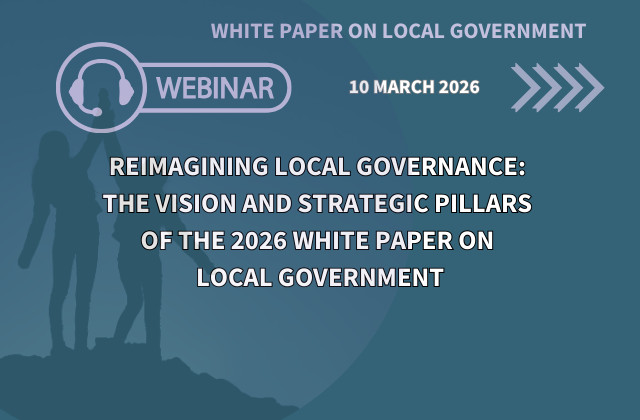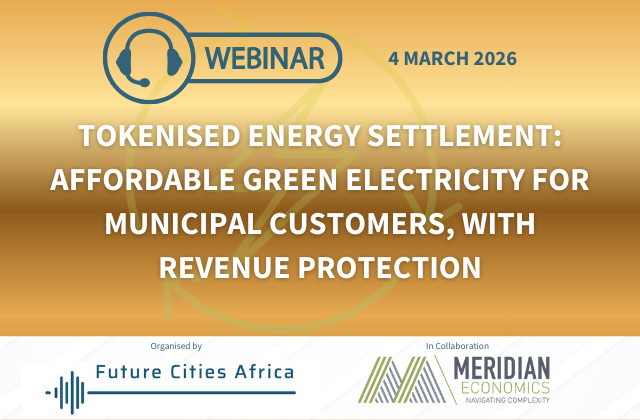Insights into Local Government Wheeling and Trading
Presented in collaboration with Future Cities Africa, Nkangala District Municipality and Enpower Trading.
Stay Connected
Speakers:
- Josh Dippenaar: Project Manager at Sustainable Energy Africa
- Terry Njuguna: Distribution Manager at Eskom
- Vally Padayachee: Strategic Adviser at Association of Municipal Electricity Utilities (AMEU)
- Nhlanhla Ngidi: Head of Electricity and Energy at South African Local Government Association (SALGA)
- Moderated by, Carla Worth, General Manager at Enpower Trading
Webinar summary
This webinar explores the concept of electricity wheeling and its potential to address the energy crisis in South African municipalities. Wheeling refers to the use of the municipal or Eskom grid to transport electricity from a private generator to a private off-taker. The speakers explore the benefits of wheeling for local businesses and economies, as well as the differences between traditional and virtual wheeling. They also discuss the challenges associated with establishing a wheeling framework and adapting building systems to handle wheeling transactions.
Virtual wheeling allows for more efficient use of renewable energy and avoids the need for expensive infrastructure upgrades. There is a great need for investment in local governments, particularly in networks that balance services, flexibility, and liquid markets, and the desire of municipalities to see service charges coming into play in situations where someone is servicing a customer that would otherwise have been served by a municipality.
Municipalities have a constitutional service delivery mandate to procure new electrons onto the National Grid through wheeling and trading. However, challenges, such as legislative and regulatory capacity, need to be addressed to facilitate wheeling and bring on the new electrons to the National Grid. One of the biggest challenges facing municipalities is the shift to clean energy sources and the need to transition away from fossil fuels. To future-proof the municipality, the use of renewable energy sources is becoming more important, with a focus on decentralisation and decarbonisation of the grid.
The use of smart technologies such as smart grids is also becoming more popular in order to better manage the distribution of energy and reduce energy costs. A case study of Berlin highlights the importance of energy storage in the future of energy distribution. The use of electric vehicles (EVs) as mobile energy sources is becoming increasingly popular, and the development of smart grids to support the integration of EVs is crucial for future proofing municipalities. The use of blockchain technology to facilitate energy trading can also help to increase efficiency and reduce costs in the energy distribution sector.
The webinar suggests that the energy industry is facing a negative spiral, with a lack of innovation and the need for more sustainable energy sources. The use of renewable energy sources is becoming increasingly important, but there are still barriers to the adoption of these technologies. The development of new energy technologies and the implementation of smart grids can help to address some of these challenges, but more investment and innovation is needed to fully transition away from fossil fuels.



